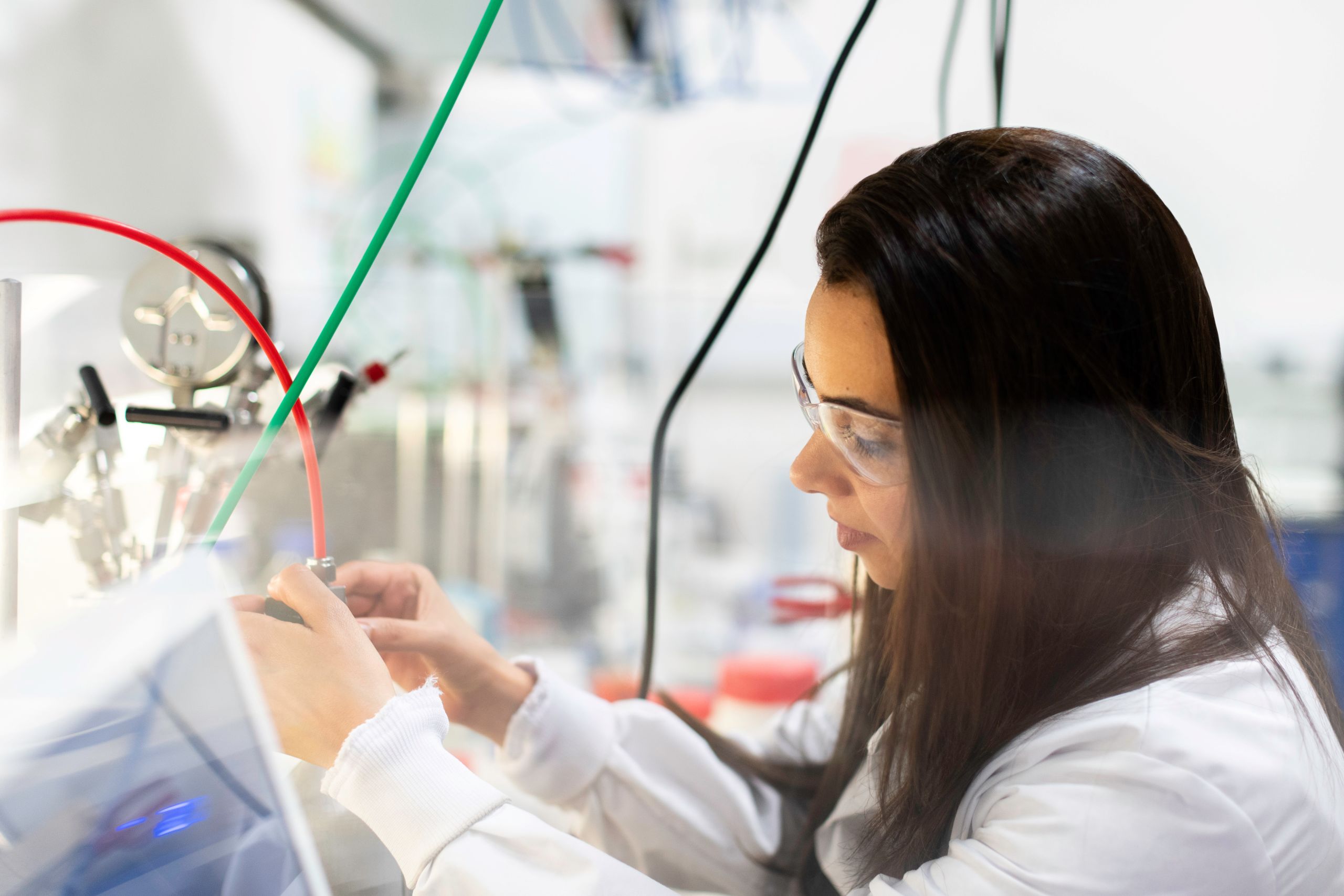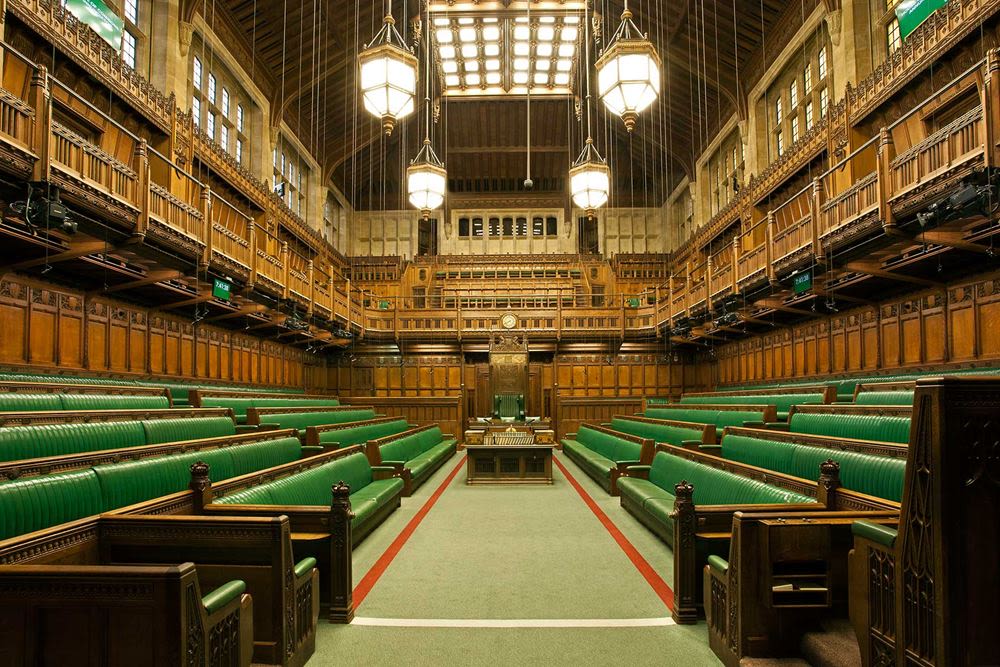Science and Discovery Centres’ support for education and careers in STEM subjects
Westminster Hall debate - 24 March 2021

"Science and Discovery Centres are a vital part of the education system, help tackle inequalities through encouraging engagement from disadvantaged communities, and broaden access to careers in STEM to underrepresented groups such as women.
"Science and innovation has never been more important than now as we see the benefits of science and importance of public science literacy in our response to the pandemic and as we look to the future challenges of climate change and how to rebuild a greener economy.
"I am delighted to have secured a Westminster Hall Debate at 14:30 on Wednesday on Science and Discovery Centres. These Centres, like many charities, have been badly affected by the pandemic. This is an opportunity to highlight and celebrate their role in supporting our schools and children now, and our future workforce and economy."

On Wednesday 24 March, Dr Ben Spencer MP led a Westminster Hall debate on Science and Discovery Centres’ support for education and careers in STEM subjects.
Several other MPs made contributions to the debate including Catherine West, Steve Brine and Carol Monaghan.
Michelle Donelan MP responded to the debate on behalf of the Government. As Minister for Universities, her role sits within the Department for Education. The issues raised in the debate are also relevant to other government departments such as Culture, Media and Sport, and Business, Energy and Industrial Strategy.
Key resources
House of Commons Library research briefings:
- Science and Discovery Centres’ support for education in science and careers in STEM subjects - a briefing prepared for this debate which covers relevant context, policies, parliamentary questions, press articles and further reading
- FE white paper: Skills for Jobs: Lifelong Learning for Opportunity and Growth
- T Levels: Reforms to Technical Education
Parliamentary questions
Oral questions:
- Katherine Fletcher MP: Science, Technology and Emerging Industries: Girls and Young Women (21 October 2020)
- Claire Coutinho MP: STEM Subjects (23 September 2020)
Written questions:
- Steve Double MP: Minerals: Higher Education (1 March 2021)
- Tommy Sheppard MP, Science: Finance (11 May 2020)
- Darren Jones MP, Science: Coronavirus (4 May 2020)
- Alexander Stafford MP, STEM Subjects (9 March 2020)
- Chi Onwurah MP, STEM Subjects: Ethnic Groups (25 February 2020)
Further parliamentary questions appear on page 7 of the House of Commons Library briefing for this debate.
POST
The Parliamentary Office of Science and Technology (POST) is a bicameral body within the UK Parliament. With more than 30 years of experience in sourcing reliable and up-to-date research evidence for the UK Parliament, POST is one of the first bodies of its kind in the world.
POST produces impartial, non-partisan, and peer-reviewed briefings, designed to make scientific research accessible to the UK Parliament. The briefings come in the form of POSTnotes and POSTbriefs. Timely and forward thinking, they cover the areas of biology and health, energy and environment, physical sciences and computing, and social sciences.
Science and Technology Committee
The work of many Government departments makes use of—or has implications for—science, engineering, technology and research. The House of Commons Science and Technology Committee exists to ensure that Government policies and decision-making are based on solid scientific evidence and advice. You can follow the Committee on Twitter @CommonsSTC.
Education Committee
The Education Committee scrutinises the work of the Department for Education, covering children’s social care, schools, colleges, the early years and higher education. The Committee also holds regular hearings with DfE’s arms-length bodies, including Ofsted, Ofqual and the Children’s Commissioner. You can follow the Committee on Twitter @CommonsEd
Business, Energy and Industrial Strategy Committee
The Business, Energy and Industrial Strategy Committee scrutinises the policy, spending and administration of the Department for Business, Energy and Industrial Strategy and its public bodies, including Ofgem, the Financial Reporting Council and the Committee on Climate Change. Sign up to our stakeholder list to receive periodic updates about our activities. You can follow the Committee on Twitter @CommonsBEIS.
Further information
What is a Westminster Hall debate?
Westminster Hall debates give MPs an opportunity to raise local or national issues and receive a response from a government minister.
The debates would normally take place in the Grand Committee Room – just off Parliament’s historic Westminster Hall - but have been temporarily suspended due to Coronavirus restrictions since 14 January. Following innovative efforts from House of Commons staff they can now take place in the more modern Boothroyd Room in Portcullis House.
The temporary move will allow up to 20 MPs to participate in any one debate physically and virtually combined. See our news story for further information: Westminster Hall debates: MPs to participate virtually and in person.
What is Hansard?
Hansard is a “substantially verbatim” report of what is said in Parliament. Members’ words are recorded, and then edited to remove repetitions and obvious mistakes, albeit without taking away from the meaning of what is said. Hansard also reports decisions taken during a sitting and records how Members voted to reach those decisions in Divisions.
You can read the transcript of this debate: STEM Subjects: Science and Discovery Centres, or search Hansard for topics which interest you.
What are parliamentary questions?
A parliamentary question (PQ) is a question put formally to a government minister about a matter they are responsible for by an MP or a member of the Lords. PQs may be asked orally - during ministerial question time in either Chamber - or in writing. They are used to seek information or to press for action from the Government.
Parliamentary questions, answers and statements relevant to this debate appear on page 7 of the Commons Library research briefing: Science and Discovery Centres’ support for education in science and careers in STEM subjects .
You can search for written questions, answers and government statements on topics which interest you.
Get involved
Other debates, online tours, education resources and more

Upcoming debates
You can see upcoming debates and other parliamentary business on our What's on page.
You can watch all debates on parliamentlive.tv.
Contact your MP
When you or people living in your area are affected by decisions made by the UK Parliament or by the Government, you can contact your MP. MPs represent all the people in their local area, whether they vote for them or not.
Your UK Parliament newsletter
Sign up for a regular newsletter packed with the latest info on free activities online and around the UK to help you get involved and make a difference.
Visit Parliament
Parliament is currently closed to visitors due to the Covid-19 pandemic, but you can still attend a free tour or a talk virtually – visit our online talks and events page for more information.
Education resources
Visit our learning pages for award-winning free education services for schools, colleges, communities and home educators.
Feedback
This exercise is run by Parliament's Digital Engagement team. Please complete our two-question survey about this engagement activity.